《改革开放40年中国人权事业的发展进步》白皮书
新华网 2018-12-13 11:20

七、积极参与全球人权治理
VII. Active Participation in Global Governance of Human Rights
改革开放40年来,中国坚持平等互信、包容互鉴、合作共赢精神,积极参与联合国人权事务,认真履行国际人权义务,广泛开展国际人权合作,不断推进全球人权治理朝着公正合理的方向发展。
Over the 40 years of reform and opening up, upholding the principles of equality and mutual trust, inclusiveness and mutual learning, and cooperation and win-win benefits, China has been active in UN human rights undertakings, fulfilling its international human rights obligations, conducting extensive international cooperation on human rights, and advancing the global governance of human rights in a fair and rational direction.
认真履行国际人权条约义务。截至目前,中国共参加26项国际人权文书,其中包括《经济、社会及文化权利国际公约》《消除一切形式种族歧视国际公约》等6项主要人权文书。中国认真履行条约义务,包括在国内立法、修法、制定政策等方面注重与条约规定相衔接,按照条约规定撰写并提交履约报告,全面反映国家履行人权条约的进展、困难和问题。中国认真参加条约机构对中国执行条约情况的审议,截至2018年8月,中国已向各条约机构提交履约报告26次,总计39期,接受审议26次。在审议过程中,中国与相关人权条约机构开展建设性对话,结合中国国情,积极采纳条约机构建议。中国支持对人权条约机构进行必要改革,促进条约机构与缔约国在相互尊重的基础上开展对话与合作。中国积极推荐专家参选条约机构委员,多名中国专家出任联合国经济、社会和文化权利委员会,禁止酷刑委员会,消除种族歧视委员会,消除对妇女歧视委员会,残疾人权利委员会委员。
Fulfilling obligations in international instruments on human rights. To date, China has signed 26 international human rights instruments, including six major ones such as the International Covenant on Economic, Social and Cultural Rights and the International Convention on the Elimination of All Forms of Racial Discrimination. China fulfills all the obligations prescribed in relevant international conventions, ensuring that its legislation and any amendments as well as its policy formulation are consistent with these conventions, and completing and submitting periodic reports to give feedback on the progress made and any difficulties and problems encountered in implementing international conventions on human rights. China accepts reviews from the treaty body on its implementation of these conventions. By August 2018, China had submitted 39 implementation reports on 26 occasions to these treaty bodies and received 26 reviews. During the reviews, China conducted constructive dialogue with the relevant treaty bodies and adopted their suggestions in accordance with the actual conditions in China. China supports the necessary reform of the human rights treaty bodies, promoting dialogue and cooperation between the treaty bodies and signatory states on the basis of mutual respect. China recommends Chinese experts as candidate members of the treaty bodies, many of whom have been chosen to serve on bodies such as the United Nations Committee on Economic, Social and Cultural Rights, the United Nations Committee against Torture, the United Nations Committee on the Elimination of Racial Discrimination, the United Nations Committee on the Elimination of Discrimination against Women, and the United Nations Committee on the Rights of Persons with Disabilities.
主动参与创设国际人权规则与机制。改革开放以来,中国参加了《禁止酷刑和其他残忍、不人道或有辱人格的待遇或处罚公约》《儿童权利公约》《残疾人权利公约》《保护所有移徙工人及其家属权利国际公约》,以及《经济、社会及文化权利国际公约》任择议定书等重要人权文件制定工作组会议,为这些规则的起草、修改和完善作出了重要贡献。中国作为主要推动者之一,参与了《发展权利宣言》的起草工作,积极推动联合国人权委员会和人权理事会就实现发展权问题进行全球磋商,致力于推动构建发展权实施机制。1993年,中国推动亚洲国家通过《曼谷宣言》。中国作为第二届世界人权大会的副主席国,参加了《维也纳宣言和行动纲领》的起草工作。1995年,在北京主办第四次世界妇女大会。2006年以来,中国支持联合国人权理事会设立安全饮用水、文化权、残疾人权利等专题性特别机制;倡导召开关于粮食安全、国际金融危机等的特别会议,积极推动完善国际人权机制。中国是最早参加联合国气候变化大会的国家,全程参与并有效推动国际气候谈判,为《巴黎气候变化协定》的最终通过作出贡献。中国积极推动联合国《2030年可持续发展议程》的制定和实施。
Participating in establishing international rules and mechanisms for protecting human rights. Since the launch of reform and opening up in 1978, China has attended the meetings of the drafting groups of the Convention against Torture and Other Cruel, Inhuman or Degrading Treatment or Punishment, the Convention on the Rights of the Child, the Convention on the Rights of Persons with Disabilities, the International Convention on the Protection of the Rights of All Migrant Workers and Members of Their Families, the Optional Protocol to the International Covenant on Economic, Social and Cultural Rights and other important documents on human rights protection, making a significant contribution to drafting, revising and improving these rules. As one of the major promoters, China participated in drafting the Declaration on the Right to Development, assisting the United Nations Commission on Human Rights (UNCHR) and the United Nations Human Rights Council (UNHRC) to organize global discussions on fulfilling the right to development, and is committed to building mechanisms for actualizing the right to development. In 1993, China pushed for the adoption of the Bangkok Declaration among Asian countries. The same year, as the vice presidency of the Second World Conference on Human Rights, China participated in drafting the Vienna Declaration and Program of Action. In 1995 in Beijing, China hosted the Fourth World Conference on Women. Since 2006, China has supported UNHRC in establishing specialized mechanisms for securing safe drinking water, cultural rights, and the rights of persons with disabilities, in calling for special conferences on food security and global financial crisis, and in improving the international mechanisms for protecting human rights. China is one of the first countries that attended the UN Climate Change Conference. China is an enthusiastic participant and an effective proponent in international climate negotiations, and has contributed to the adoption of the Paris agreement. China has facilitated the formulation and implementation of the 2030 Agenda for Sustainable Development by the United Nations.
积极参与联合国人权事务。自1979年起,中国连续3年作为观察员出席联合国人权委员会会议。1981年,中国在联合国经社理事会组织会议上当选为人权委员会成员国。自1982年起,中国正式担任人权委员会成员国并一直连选连任。自1984年起,中国推荐的专家连续当选为防止歧视和保护少数小组委员会的委员和候补委员。积极参与人权委员会对相关议题的讨论和磋商。为构建公正、客观、透明的国际人权机制,中国积极参与联合国人权专门机制的改革,在设立联合国人权理事会的磋商和最后表决过程中发挥了重要作用。自2006年3月以来,中国四度当选人权理事会成员。同联合国人权高专办等保持建设性接触,鼓励其客观、公正履职,重视发展中国家关切。与人权理事会特别机制开展合作,自1994年以来,中国先后邀请宗教信仰自由特别报告员、任意拘留问题工作组、教育权特别报告员、酷刑问题特别报告员、粮食权特别报告员、消除对妇女歧视问题工作组、外债对人权影响问题独立专家、极端贫困与人权问题特别报告员访华。认真对待人权理事会特别机制来函,在认真调查的基础上及时答复。深入参与有关人权机制工作,推动多边人权机构以公正、客观、非选择性方式处理人权问题。认真落实中国在人权理事会第一轮、第二轮国别人权审查中接受的建议,积极参与第三轮国别人权审查。连任联合国非政府组织委员会成员。多名专家出任联合国人权理事会咨询委员会、形势工作组成员。鼓励非政府组织积极参与人权理事会等人权机制活动。
Engaging in UN human rights undertakings. From 1979 to 1981, China attended the meetings of the UNCHR as an observer state. In 1981, China was elected a member state of the UNCHR at the meeting of the United Nations Economic and Social Council (ECOSOC). In 1982, China became an official member state of the UNCHR and has maintained this position ever since. Since 1984, a succession of experts recommended by China have been elected members and alternate members of the United Nations Sub-commission on the Prevention of Discrimination and Protection of Minorities. China takes an active part in discussions and negotiations of relevant issues in the UNCHR. To build a fair, objective and transparent international mechanism for protecting human rights, China is a vigorous proponent of reform of the UN special mechanisms for protecting human rights; it played a significant role in the negotiations and final vote on establishing the UNHRC. Since March 2006, China has been elected a UNHRC member state four times. China maintains constructive contacts with the United Nations Office of the High Commissioner for Human Rights (OHCHR), encouraging the OHCHR to perform its duties fairly and objectively, and directing more attention to the concerns of developing countries. China conducts cooperation with the Special Procedures of the Human Rights Council. Since 1994, China has invited the following UN representatives to visit the country: the United Nations Special Rapporteur on Freedom of Religion or Belief, the United Nations Working Group on Arbitrary Detention, the United Nations Special Rapporteur on the Right to Education, the United Nations Special Rapporteur on Torture and Other Cruel, Inhuman or Degrading Treatment or Punishment, the United Nations Special Rapporteur on the Right to Food, the United Nations Working Group on the Elimination of Discrimination against Women, the United Nations Independent Expert on the Effects of Foreign Debt and Other Related International Financial Obligations of States on the Full Enjoyment of All Human Rights, Particularly Economic, Social and Cultural Rights, and the United Nations Special Rapporteur on Extreme Poverty and Human Rights. China handles letters from the Special Procedures of the Human Rights Council with due attention, carrying out any necessary investigations and giving timely replies. China is deeply involved in international mechanisms for protecting human rights, assisting multilateral human rights organizations to address such issues in a fair, objective and nonselective manner. China has implemented the suggestions adopted during the first and second Universal Periodic Review (UPR) cycles, and is actively participating in the third UPR cycle. China has been reelected a member state of the United Nations Committee on Non-governmental Organizations. Chinese experts have been appointed members of the UNHRC Advisory Committee and the Working Group on Situations. China encourages its NGOs to participate vigorously in the UNHRC and other human rights protection mechanisms.
广泛开展国际人权交流与合作。中国始终致力于在平等和相互尊重基础上与世界各国就人权议题开展建设性对话与合作,广泛开展人权领域的交流交往。自上世纪90年代起,中国陆续与20多个国家建立人权对话或磋商机制。同美国、欧盟、英国、德国、瑞士、荷兰、澳大利亚、新西兰等西方国家或国际组织举行人权对话、人权交流、法律专家交流和人权技术合作,促进政府部门、司法机构、学术团体交流互鉴,增进了解。同俄罗斯、埃及、南非、巴西、马来西亚、巴基斯坦、白俄罗斯、古巴、非盟等开展人权磋商,分享经验,深化合作。
Conducting extensive international exchanges and cooperation concerning human rights. China is committed to promoting constructive dialogue and cooperation on human rights with other countries based on equality and mutual respect, and to organizing extensive exchanges to this end. Since the 1990s, China has established dialogue and negotiation mechanisms for human rights protection with more than 20 other countries. China has organized dialogue and exchanges on human rights and exchanges between legal experts, and technical cooperation on human rights with international organizations and Western countries, including the US, the EU, the UK, Germany, Switzerland, the Netherlands, Australia and New Zealand, to enhance communication, understanding and mutual learning between governmental departments, judicial organs and academia. China has held human rights discussions with Russia, Egypt, South Africa, Brazil, Malaysia, Pakistan, Belarus, Cuba and the African Union, to share experience and enhance cooperation.
近年来,中国先后在北京举办“纪念联合国《残疾人权利公约》通过十周年大会”“亚欧非正式人权研讨会”“纪念《发展权利宣言》通过30周年国际研讨会”、首届“南南人权论坛”等大型国际人权论坛或研讨会,促进了国际人权对话与交流。中国人权研究会等人权领域民间组织积极开展人权交流与合作,成功举办九届“北京人权论坛”,连续举办四届“中欧人权研讨会”和多届“中德人权研讨会”“中美司法与人权研讨会”“国际人权文博会”等活动,为各国之间文明交流互鉴起到了重要作用。中国每年通过接待相关国家和国际人权组织代表来访、安排中国人权代表团出访等形式,不断加强并深化与世界各国在人权领域的交流合作,增进彼此之间的了解和理解。
In recent years, China has hosted several international forums and seminars on human rights in Beijing, including the Conference Commemorating the 10th Anniversary of the Adoption of the Convention on the Rights of Persons with Disabilities (2016), the 16th Informal Asia-Europe Meeting (ASEM) Seminar on Human Rights (2016), the International Seminar Commemorating the 30th Anniversary of the Adoption of the Declaration on the Right to Development (2016), and the First South-South Human Rights Forum (2017). All of these have strengthened international dialogue and exchanges on human rights. The China Society for Human Rights Studies (CSHRS) and other human rights NGOs in China promote exchanges and cooperation on human rights. They have organized the Beijing Forum on Human Rights on nine occasions, China-Europe Seminar on Human Rights on four occasions, and the International Seminar on Human Rights and Museology several times, as well as the China-Germany Seminar on Human Rights and the Sino-American Dialogue on the Rule of Law and Human Rights. These play an important role in increasing exchanges and mutual learning among civilizations. Every year China receives human rights representatives from many countries and international organizations, and arranges for foreign visits by Chinese human rights delegations, to strengthen its exchanges and cooperation on human rights with other countries and enhance mutual knowledge and understanding.
努力提供全球人权治理中国方案。中国积极参与全球人权治理,在联合国大会、人权理事会等场合提出系列倡议,推动构建公平正义、合理有效的国际人权体系。中国明确提出“生存权发展权是首要的基本人权”的理念,坚持各项人权要协同推进,坚持人权的普遍性与特殊性相统一,强调以合作促发展、以发展促人权等人权理念和主张对广大发展中国家乃至世界人权事业发展具有重要引领作用。习近平主席提出的构建人类命运共同体理念,在国际上引起热烈反响,先后被写入联合国人权理事会、联合国安理会等机构的多份决议,正在被越来越多的国家所接受,成为推动包括全球人权治理在内的世界未来发展的中国智慧和中国方案。中国推动联合国人权理事会通过“纪念第四次世界妇女大会暨《北京宣言》和《行动纲领》通过20周年”主席声明、“加强公共卫生能力建设促进健康权”“发展对享有所有人权的贡献”“在人权领域促进合作共赢”等决议。尤其是“发展对享有所有人权的贡献”决议的通过,首次将“发展促进人权”引入国际人权体系。中国多次代表140余国就“加强人权合作”“落实发展权”“共建人类命运共同体”等议题作共同发言;多次在联合国举办“减贫促进人权”等主题的人权边会和展览。
Providing Chinese solutions to global human rights governance. China is actively engaged in global governance of human rights, making proposals at the United Nations General Assembly and the United Nations Human Rights Council and on other occasions to promote the establishment of an international human rights system that is fair, just, reasonable and effective. China proposes the view that "The rights to subsistence and development are the primary, basic human rights." China adheres to the principle that all human rights should develop side by side, and that both the universality and the particularity of human rights should be taken into account. China emphasizes advancing development through cooperation and promoting human rights through development. These perspectives and proposals lead the cause of human rights both in developing countries and in the wider world. The idea of building a global community of shared future, as proposed by President Xi Jinping, has elicited a positive international response. The concept has been written into many resolutions of the United Nations Human Rights Council and the United Nations Security Council, and is being recognized by more and more countries. It is an example of Chinese wisdom and a Chinese solution to future world development, including global governance of human rights. China has supported the passing of many resolutions by the UNHRC, including the President's Statement on the Twentieth Anniversary of the Fourth World Conference on Women and of the Adoption of the Beijing Declaration and Platform for Action, Promoting the Right to Health through Enhancing Capacity-building in Public Health, The Contribution of Development to the Enjoyment of All Human Rights, and Promoting Mutually Beneficial Cooperation in the Field of Human Rights. Particularly, the passing of the resolution, The Contribution of Development to the Enjoyment of All Human Rights, for the first time introduced the concept of "promoting human rights through development" into the international human rights system. On behalf of over 140 countries, China has delivered speeches on issues such as "enhancing cooperation on human rights", "actualizing the right to development" and "building a global community of shared future" on many occasions; China has also hosted side events and exhibitions at the UN with the theme of "promoting human rights through poverty reduction".









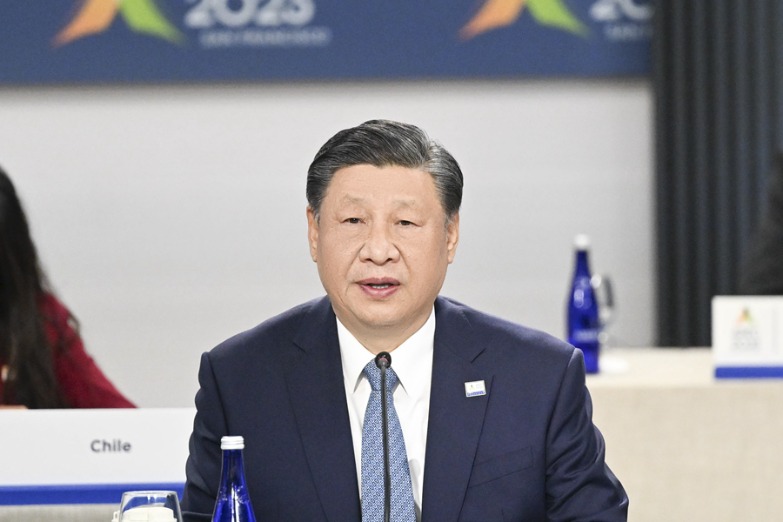
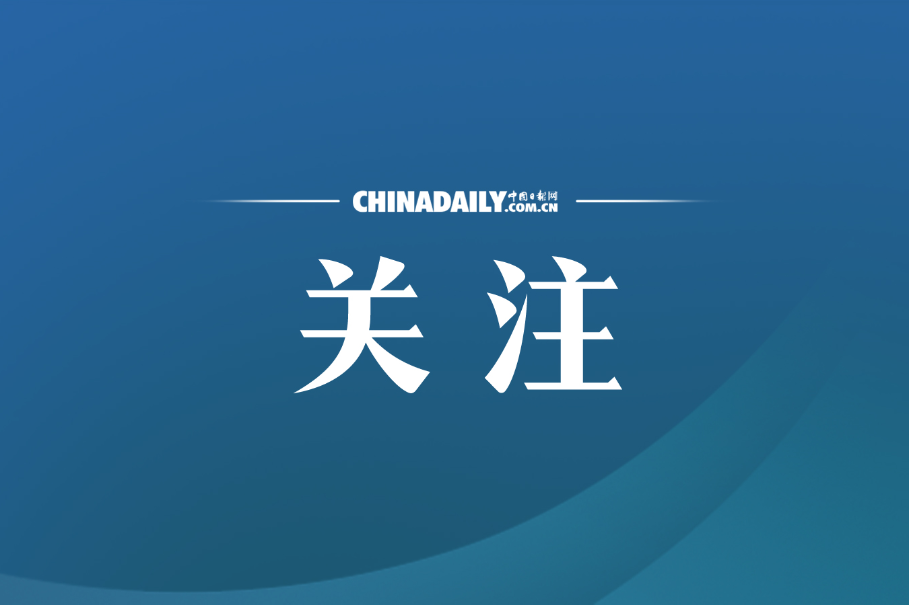
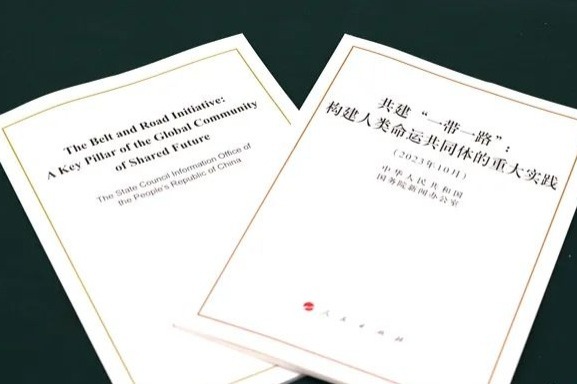
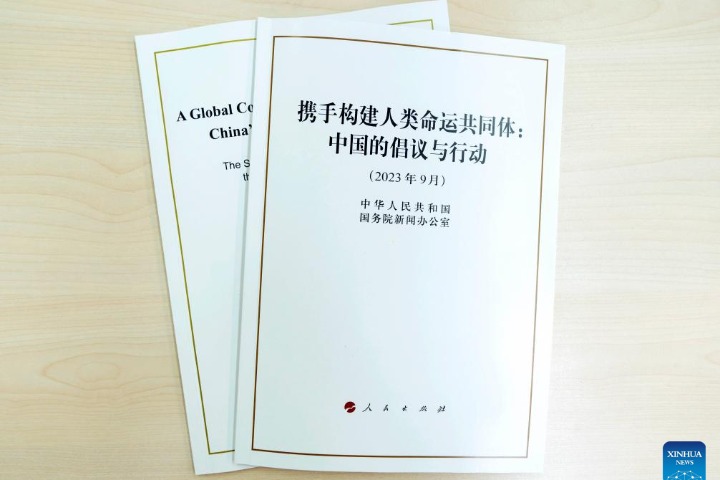
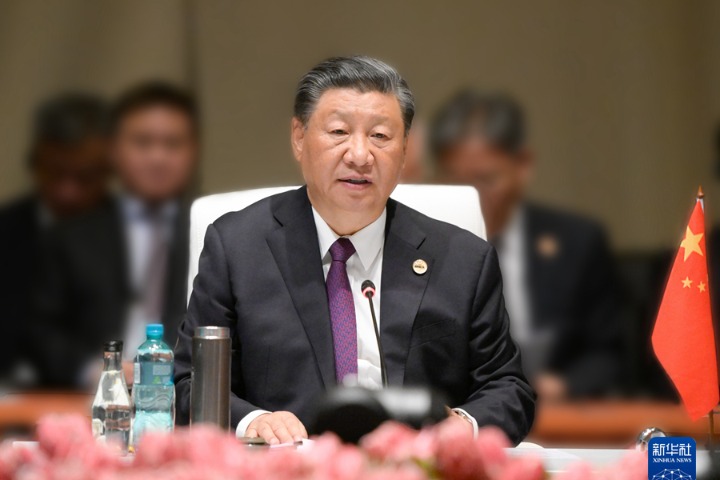



 英语点津微信
英语点津微信 双语小程序
双语小程序